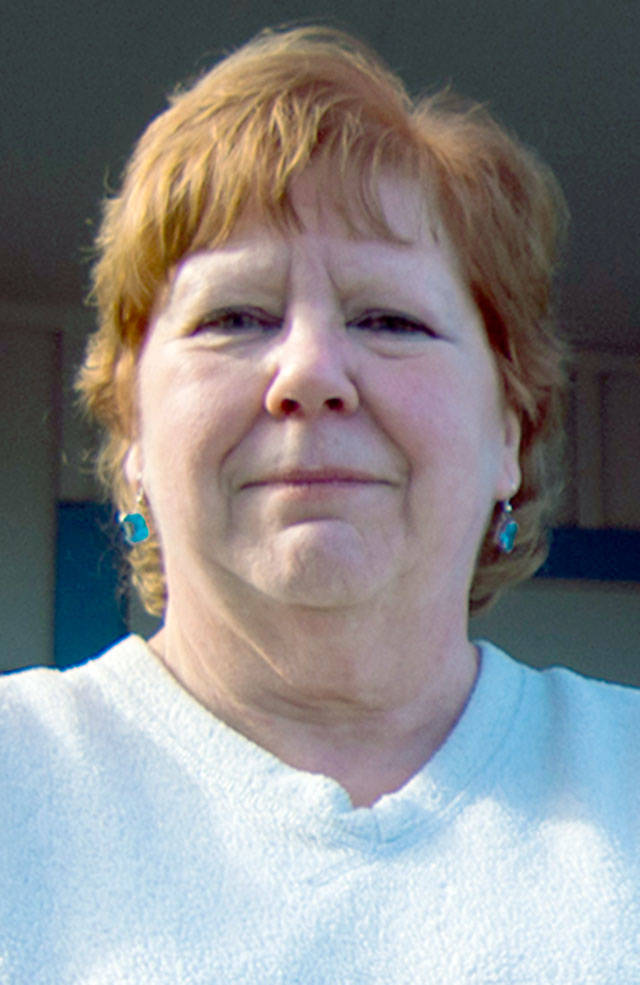PORT ANGELES — Dam Bar owner Elda Brandt has settled a music licensing organization’s federal lawsuit against her for copyright infringement, she said.
The Forks native said Wednesday that a Port Angeles customer and friend, who asked to remain anonymous, agreed to pay $8,500 in licensing and attorney fees to resolve the Western Federal District Court case filed Feb. 13 by the New York-based American Society of Composers, Authors and Publishers, a nonprofit performance rights organization widely known as ASCAP.
“They agreed to settle out of court,” Brandt said.
“I expect this to be resolved by the end of the month.
“They wanted $8,500 by the end of the month, which is virtually impossible for me,” she added.
“I had a customer who stepped forward and paid that, and I continue to have fundraisers to pay him back.”
Brandt said under the settlement agreement, she will pay past and current music licensing fees and ASCAP’s attorney costs.
Brandt said she’s waiting for her attorney to send her the contract for her to sign.
ASCAP spokeswoman Cathy Nevins would not comment Wednesday on the settlement.
Brandt purchased the establishment, located west of Port Angeles near the U.S. Highway 101-state Highway 112 intersection, when it was the Junction Roadhouse in 2014.
She was required to pay $912 annually for ASCAP licensing fees, ASCAP representatives said in an earlier interview.
She has started charging each patron a $2 donation for the weekly Thursday night blues jam that had been free and for other live music.
“If you charge a cover charge, they raise the licensing fee,” Brandt said.
“We’re not calling it a cover charge, we’re calling it a door donation.”
Brandt also is getting rid of her juke box because the person she gets it from will not pay the licensing fee.
“They are not taking me down,” she said.
General music licensing rules for establishments, including those covering the music-streaming service Pandora, which Brandt said she will now use for background music, are outlined by the National Restaurant Association at https://tinyurl.com/PDN-MusicFees.
Brandt said she also must soon begin paying licensing fees to two more performing rights organizations (PROs), Broadcast Music Inc. (BMI) and the Society of European Stage Authors and Composers (SESAC).
She criticized SESAC and ASCAP for using hardball tactics to get her to pay the fees.
SESAC’s representative, who recently contacted Brandt by letter, warned her that the letter “was the last good-faith attempt by my client to resolve this matter,” Brandt said, reading from the letter.
“That’s not the way to get through to me,” Brandt said.
“Don’t threaten me.”
Brandt said she repeatedly ignored entreaties by ASCAP representatives who called her to pay music licensing fees and disregarded their letters.
“When they send threatening letters and and call and threaten you on the phone and call you a liar and a thief, I have no reason to think these are professional companies,” she said.
She also said she does not believe ASCAP’s claims that licensing fees go to songwriters and other ASCAP clients.
ASCAP, which represents 650,000 songwriters and others in the music industry, says 88.4 percent of its revenue is distributed to its members, according to a Q & A at ASCAP’s website at https://tinyurl.com/PDN-ASCAP.
The lawsuit against the Dam Bar sought between $3,000 and $120,000 in damages, court costs and attorney fees under federal copyright laws.
It was prompted by the report of a private investigator hired by ASCAP, ASCAP legal counsel Jackson Wagener said in an earlier interview.
The Dam Bar was one of 11 bars, restaurants and music venues nationwide that ASCAP sued for copyright infringement in February, according to a press release.
The organization’s lawsuits are usually prompted by a perusal of advertisements and social media to find out what businesses are playing music and a check to see if they are properly licensed, although Wagener did not know why the Dam Bar was singled out.
According to the lawsuit, ASCAP representatives made more than 15 attempts to contact Brandt, her employees or former co-owner Jennifer Landon, Brandt’s daughter, “to offer an ASCAP license to the Dam Bar,” according to the lawsuit.
“ASCAP has contacted defendants by phone, by mail, in person.
“Defendants have refused all of ASCAP’s license offers for the Dam Bar.”
Brandt, sued for playing four unlicensed songs at an April 19, 2017, karaoke night, said ASCAP targeted her after she testified in Olympia for a bill that overwhelmingly passed the House and Senate in 2016 and was signed by Gov. Jay Inslee.
Brandt said owners of other venues in Port Angeles play unlicensed music who are never taken to task like she has been.
The legislation, HB 1763, prohibits performance rights organization representatives from using “obscene, abusive or profane language when communicating with the proprietor or his or her employees.”
It requires PROs to register with the state Department of Licensing, file annual copies of all performing rights agreements under which royalties are paid and requires the PRO representative to communicate with an unlicensed proprietor’s attorney about licensing performances of musical works.
State Sen. Kevin Van De Wege of Sequim, who sponsored the bill when he was in the House, said Wednesday he will work on legislation during the 2019 legislative session to strengthen prior-notice requirements for PROs when enforcing licensing requirements for live music.
Music copyright laws have essentially made cover bands extinct, Van De Wege said.
“I will make sure that [PROs] give owners notice and have a list as proof that they actually own the right to that song instead of just going in and being jerks to people,” Van De Wege said.
“They could be playing a CD and all of a sudden they learn a song is covered and they are being harassed by people.”
________
Senior Staff Writer Paul Gottlieb can be reached at 360-452-2345, ext. 55650, or at pgottlieb@peninsuladailynews.com.


